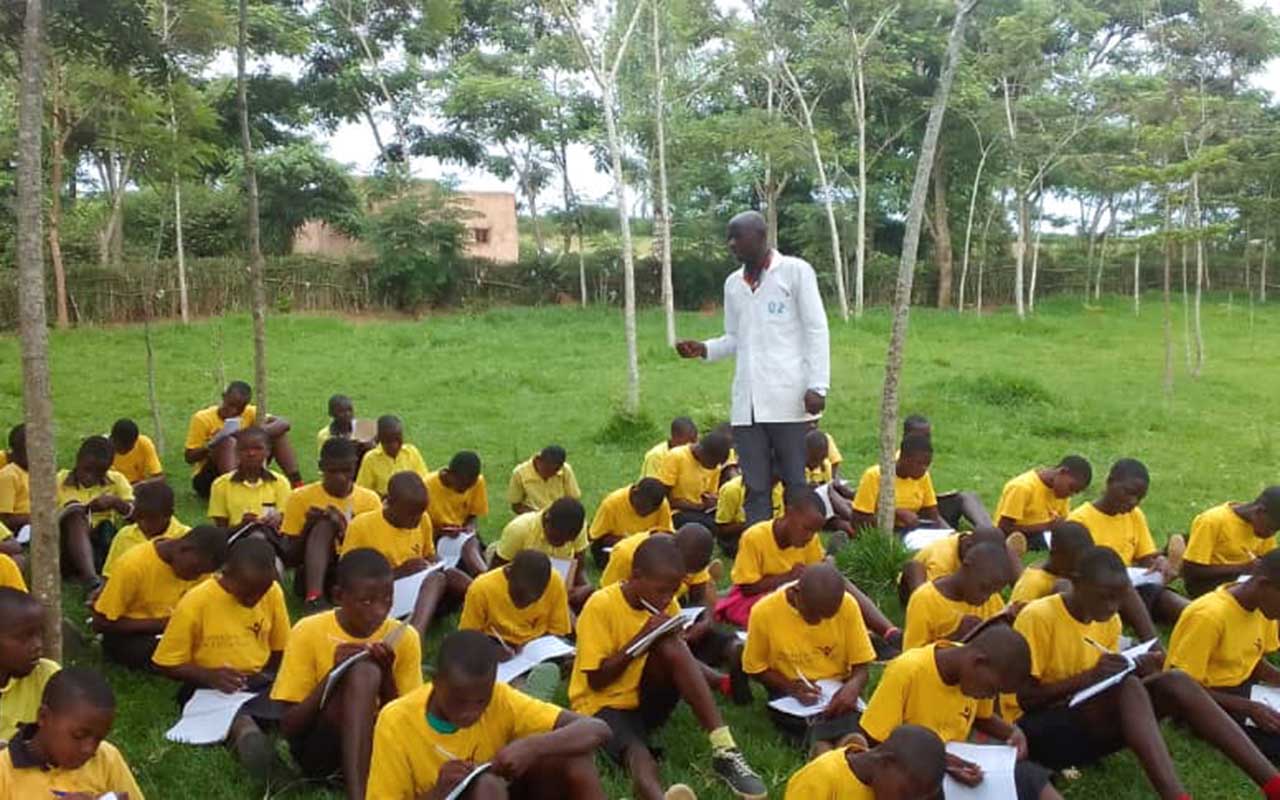From November, most of these distant travellers started to show up in our area, some to stay in the area for a while, others just for a stop-over before they continue their journey to Southern Africa. The first migrants we have seen have been Wahlberg’s eagles coming from the north of Africa and moving towards their breeding grounds in the south. European bee-eaters are coming from regions like Portugal and from as far east as Russia; also European rollers, whose almost entire world population winters in sub-Saharan Africa.
November was also the month in which we received the second highest rainfall for the year, the transformation coming with it invigorating the wildlife all around. Some very interesting behaviour was noted by our guides this month, with a very high percentage of leopard sightings high up in trees. Whereas in other areas most leopards are seen in trees, this is usually not the case at Magashi. The reason might have been the high rainfall, which might have caused the leopards to seek some relief from the sopping wetness of the long grass. But it could also have been due to an increase of lion activity in the area, with the leopards preferring to spend more time in trees to avoid lion confrontations.
The spirit of the forest – a Rwandan novelty introduced at Magashi
Guests at Magashi can now enjoy the first internationally awarded artisanal rum produced in Rwanda! Earthy, complex, and herbaceous, IMIZI Forest Rum is made from fresh sugarcane and infused with a bouquet of rare forest botanicals – surely something you should try on your next stay with us!

Children in the Wilderness at Akayange Primary and Rwabiharamba Secondary School
At Wilderness Magashi's partner schools Akayange Primary and Rwabiharamba Secondary, the weekly environmental classes are met with great enthusiasm by the students. At Akayange Primary School, 60 learners partake in the weekly CITW Eco-Club, while at Rwabiharamba Secondary School, 65 students attend the weekly CITW Yes Club. In November, CITW’s Aline and Damascene ensured that the schools have all the materials they need to run the successful clubs, including a smart phone to take pictures and send progress reports each week. Aline and Damascene also completed the CHEAK test at each school. This is a fun test that we conduct at the start and at the end of the school year to measure our impact on the children’s environmental education.

A day of exercise and fun
This month we could also make some time for team-building activities and to have some fun in the sun. On one morning Magashi staff went for a big team run around our private concession. With the safety of a vehicle following behind them, and Dean running ahead armed, we managed to do a 14 km run in the heat of the African sun. Those who still had some energy after all this joined the Magashi soccer team, playing against the Akagera National Park rangers in the afternoon; there were still others who went on one of the two staff game drives instead, taking the opportunity to enjoy the bush from a guest’s perspective.









